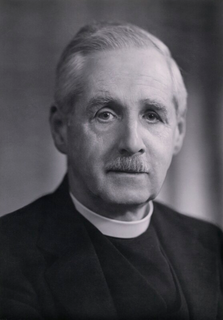A Quote by A.J. Ayer
Theism is so confused and the sentences in which "God" appears so incoherent and so incapable of verifiability or falsifiability that to speak of belief or unbelief, faith or unfaith, is logically impossible.
Quote Topics
Related Quotes
Until the content of a belief is made clear, the appeal to accept the belief on faith is beside the point, for one would not know what one has accepted. The request for the meaning of a religious belief is logically prior to the question of accepting that belief on faith or to the question of whether that belief constitutes knowledge.
The most interesting character to me is someone who is stuck in the no man's land between Belief and Unbelief, Faith and Faithlessness. I'm capitalizing like a German, but it doesn't matter whether it's faith in a person or in God, or belief in science or whatever, it's the desperate in-between state that makes for interesting dramatic tension.
I have noticed that whenever a person gives up his belief in the Word of God because it requires that he should believe a good deal, his unbelief requires him to believe a great deal more. If there be any difficulties in the faith of Christ, they are not one-tenth as great as the absurdities in any system of unbelief which seeks to take its place.
Atheism ... in its philosophic aspect refuses allegiance not merely to a definite concept of God, but it refuses all servitude to the God idea, and opposes the theistic principle as such. Gods in their individual function are not half as pernicious as the principle of theism which represents the belief in a supernatural, or even omnipotent, power to rule the earth and man upon it. It is the absolutism of theism, its pernicious influence upon humanity, its paralyzing effect upon thought and action, which Atheism is fighting with all its power.
The belief in God is not therefore based on the perception of design in nature. Belief in design in nature is based upon the belief in God. Things are as they are whether there is a God or not. Logically, to believe in design one must start with God. He, or it, is not a conclusion but a datum. You may begin by assuming a creator, and then say he did this or that; but you cannot logically say that because certain things exist, therefore there is a God who made them. God is an assumption, not a conclusion. And it is an assumption that explains nothing.
According to the teaching of our Lord, what is wrong with the world is precisely that it does not believe in God. Yet it is clear that the unbelief which he so bitterly deplored was not an intellectual persuasion of God's non-existence. Those whom he rebuked for their lack of faith were not men who denied God with the top of their minds, but men who, while apparently incapable of doubting him with the top of their minds, lived as though he did not exist.
Obviously, if theism is a belief in a God and atheism is a lack of a belief in a God, no third position or middle ground is possible. A person can either believe or not believe in a God. Therefore, our previous definition of atheism has made an impossibility out of the common usage of agnosticism to mean "neither affirming nor denying a belief in God."
A system is empirical or scientific only if it is capable of being tested by experience. These considerations suggest that not the verifiability but the falsifiability of a system is to be taken as a criterion of demarcation... It must be possible for an empirical or scientific system to be refuted by experience.
We may define "faith" as the firm belief in something for which there is no evidence. Where there is evidence, no one speaks of "faith." We do not speak of faith that two and two are four or that the earth is round. We only speak of faith when we wish to substitute emotion for evidence. The substitution of emotion for evidence is apt to lead to strife, since different groups, substitute different emotions.
Theism, as a way of conceiving God, has become demonstrably inadequate, and the God of theism not only is dying but is probably not revivable. If the religion of the future depends on keeping alive the definitions of theism, then the human phenomenon that we call religion will have come to an end. If Christianity depends on a theistic definition of God, then we must face the fact that we are watching this noble religious system enter the rigor mortis of its own death throes.
Belief is in a sense passive, an agreement or acceptance only; faith is active and positive, embracing such reliance and confidence as will lead to works. Faith in Christ comprises belief in Him, combined with trust in Him. One cannot have faith without belief; yet he may believe and still lack faith. Faith is vivified, vitalized, living belief.
I shall not convert you at the end of my argument. I think the argument is sound. I hold that belief in God is not merely as reasonable as other belief, or even a little or infinitely more probably true than other belief; I hold rather that unless you believe in God you can logically believe in nothing else.








































